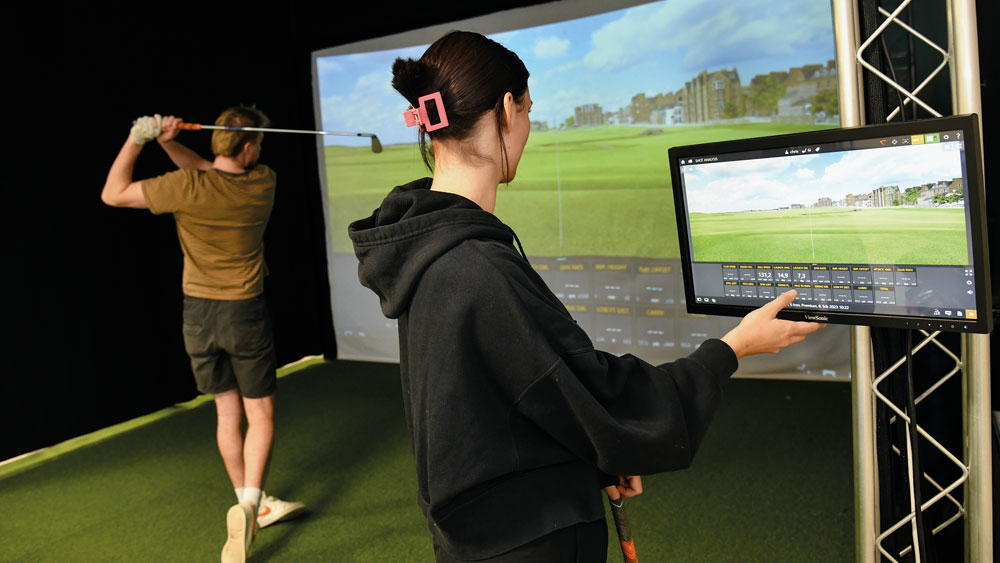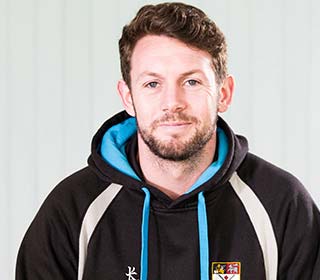MSc Data Analytics for Sport
Sport continues to move forward with the increasing use of data-driven forecasting models. On this programme you will better understand both objective and subjective information to make accurate predictions on and off field.

Course Summary
Sporting organisations are increasingly utilising data-driven approaches to recruitment, individual and team analysis, opposition analysis and to develop new products. Each enables organisations to ‘punch above their weight’ and gain a competitive advantage in a dynamic operating environment. This course will equip you with the skills and abilities to understand, use and present complex data sets to a range of strategic and operational stakeholders in sport, and therefore contribute meaningfully to success. Via a mix of lectures, seminars, workshops, practical exercises and visits, you’ll gain
a comprehensive and critical understanding of this fast-moving area of sports performance. If you are keen to use data to provide interesting and novel insight to sporting directors, coaches, and recruitment teams, then this course will set you on your path to an exciting career.
Why this course at Marjon?
Our links with professional sports clubs through our vast local and regional networks, provide you with fantastic opportunities to develop real-world skills alongside the deep and meaningful input from lecturing staff.
Marjon has a long and proud history in delivering high quality sports degrees.
Flexible study options enable you to undertake the whole programme, individual modules, or specialised short courses to enhance your knowledge, skills and employability.
Modules for this course
1st Year
Introduction to Coding, Performance & Video Analysis in Sport
Data and Performance Analytics for Recruitment in Sport
Applied Data Visualisation in Sport
Contemporary Issues in Data Analytics Environments
Advanced Research Methods and Data Analysis in Sport and Exercise
Applied Professional Practice
Masters Thesis/Project
This course is perfect if you're curious about these questions...
What type of data do different stakeholders find most useful, and why?
How can I identify the right programme to meet the needs of my role and the organisation?
How can complex data sets be appropriately presented, so that key messages can be fully understood?
How do we meaningfully integrate a data-driven approach to decision-making, without compromising the thoughts, feelings, emotions and intuitions of highly-experienced and skilled professionals?
How can data be used to drive sporting performance?
“ This is exactly the kind of course I would have studied at University if it was available at the time. Its such an important function in professional sport today. ”
This course prepares you for a career as a:
· Data Analyst
· Insights Analyst
· Performance Analyst
Or it will help to upskill you, leading to leadership roles as a Head or Director of:
· Performance
· Analysis
How you’ll be taught and assessed?
How will you be taught?
Teaching will be delivered through a blocked or hybrid approach. On occasions, you’ll be on-campus in the performance & data analysis suite, or in a well-equipped classroom, working closely with the lecturing team. These sessions will be blocked to both maximise your time, and ensure you maintain currency/employment with industry. On other occasions, you will learn from a distance, through live and pre-recorded content, and resources available via our virtual learning environment (VLE). There will also be many opportunities for you to manage your own time and learning experiences through external placement opportunities and research projects.
How will you be assessed?
You will experience a varied assessment diet, reflective of the industry that you’ll be engaging with. Therefore, in addition to written assignments (e.g. reports, essays, case studies and project/thesis), you will also experience assessment that utilises infographics, data analysis plans, presentations and web/application-creation.
Fees and funding
Fees UK students: £8000
Additional costs:
Students will also be expected to have their own (good quality) laptop, and purchase University-branded sports kit for external practical activities
Lecturers

Ben, currently undertaking a PhD specializing in vertical jump force-time analysis; monitoring and enhancing performance. He is also a Sport Science Officer lecturing in applied biomechanics and strength & conditioning.

Dr Joseph Layden
Associate Dean (Research and Innovation) School of Sport, Business and Media
View profileJoe has 20 years experience within the area of health and exercise physiology and researches health care interventions, physiology and metabolism. He previously worked as an Occupational Physiologist and Researcher for the UK Ministry of Defence and the Netherlands National Research Office.

Chris has been involved in community football for over 20 years. He oversees the sport science support programme for Plymouth Argyle FC Youth Academy and the operational management for their Centre of Excellence. He helps students to gain volunteering and placement opportunities. He is a Coach Mentor for the FA and as part of the degree programme; students can apply to become part of the FA Young Coach Development Team to develop their theoretical understanding and coaching practice. His other interests include performance analysis, physiological testing and the development of football within the wider community.



